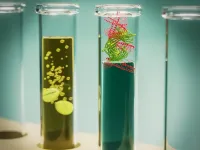https://www.massgeneral.org/news/research-spotlight/lab-on-chip-technology-red-blood-cellsZiya Isiksacan, PhD, a research fellow in the Center for Engineering in Medicine and Surgery (CEMS) is the lead author, and Osman Berk Usta, PhD, an investigator in the CEMS at Massachusetts General Hospital and an associate professor of Surgery at Harvard Medical School, is the senior author of a new study published in PNAS, Assessment of Stored Red Blood Cells Through Lab-on-a-Chip Technologies for Precision Transfusion Medicine.
The article is a collaboration between multiple international institutes and disciplines, and seeks to create discussion and change towards better assessment of stored blood.
What Question Were You Investigating?
This is a perspective article that is prompted by issues regarding the quality of stored Red Blood Cells (RBCs) and the lack of good assessment prior to their transfusion. Specifically, we and others posit that stored RBCs, under current practices, are not always safe to transfuse due to donor, time, and processing factors. This is especially problematic for critically ill patients, those on chronic transfusion regimens, and surgeries where large volumes of RBCs are transfused.
Accordingly, we have, in this perspective, highlighted the lack of quantitative assessment of stored RBCs before transfusion on a unit-by-unit basis, a notable failure in this era of personalized medicine. We foresee that, over the next decade, state-of-the-art technologies such as -omics and machine learning can be combined to first identify a set of key quantitative quality metrics (i.e., a quality index) for stored RBCs. These quality indices can then guide lab-on-a-chip platforms armed with novel biosensors to continuously monitor stored RBC quality and then match the properties of the RBC unit to the needs of the patient.
What Were Your Findings?
What makes this article unique is the wide breadth of authors representing the different stakeholders that will ultimately contribute to the solutions proposed in the perspective article. Specifically, we have recruited experts from hematology, transfusion medicine, blood storage and biopreservation, -omics, engineering and life sciences, global health, and ethics who represent both academic and industrial points of view.
Lab-on-a-chip technologies can ensure a more successful transfusion workflow by enabling objective assessment of stored RBC units using quality metrics identified by -omics and machine learning, thus ushering in a new era of precision transfusion medicine. Addressing the potential and challenges of precision transfusion medicine will facilitate the proposed convergent future whereby each stored RBC unit is assessed prior to transfusion via a quality index. This will require all stakeholders (including experts in blood banking, biopreservation, transfusion medicine, -omics, machine learning, bioengineering, ethics, regulation, and ultimately patients) to participate in multidisciplinary discussions and collaborations rather than their current isolated efforts. This Perspective – where we have a diverse team of such stakeholders – is a step towards this envisioned era of precision in transfusion medicine.
What Are the Clinical Implications?
Our envisioned workflow, discussed in this perspective, was conceived for safer (less adverse effects and complications) and more efficacious transfusion. As noted, lack of quality assessment of stored RBCs can be especially problematic for critically ill patients, those on chronic transfusion regimens, and surgeries where large volumes of RBCs are transfused. Thus, if the envisioned workflows are realized, they would represent a momentous step forward for patient safety.
What Are the Next Steps?
This perspective was written by a consortium of authors representing different stakeholders with the goal of envisioning and creating a better future for transfusion medicine safety with the use of advanced technologies. As such, our next steps are to create interactive forums (conferences and workgroups) to engage and mobilize a larger number of stakeholders to realize the envisioned goals outlined in this perspective.
The consortium of authors includes: Dr. Ziya Isiksacan (microfluidics, biopreservation, RBC morphology, electrical engineering - MGH & Shriners Children’s), Dr. Angelo D’Alessandro (Metabolomics, proteomics, biochemistry, transfusion medicine, RBC biology – U. Colorado Anschutz), Dr. Susan M. Wolf (bioethics, law, health law, science law – U. Minnesota), Dr. David H. McKenna ( transfusion medicine, blood, cell therapy, quality control, pathology – U. Minnesota), Dr. Shannon N. Tessier (biopreservation, biochemistry, MGH & Shriners Children’s), Dr. Erdem Kucukal (RBC disorders, hemorheology, commercialization mechanical engineering – Biochips Labs), Dr. Aslihan A. Gokaltun (biopreservation, biomaterials, polymer science, chemical engineering - MGH & Shriners Children’s), Nishaka William (biopreservation, RBC biology – U. Alberta), Dr. Rebecca D. Sandlin (Cryobiology, biostabilization, global health – MGH & Shriners Children’s), Dr. John Bischof (biopreservation, nanowarming, cryobiology, mechanical engineering), Dr. Narla Mohandas (Hematology, transfusion medicine, blood banking, RBC biology – New York Blood Center), Dr. Michael P. Busch (transfusion medicine and safety, blood safety, infectious diseases – Vitalant Research Institute & U. California San Francisco), Dr. Caglar Elbuken (Microfluidics, point-of-care diagnostics, instrumentation, RBC morphology, biosensors – U. Oolu & Bilkent U)., Dr. Umut A. Gurkan (RBC disorders, clinical microfluidics, point-of-care diagnostics, commercialization, mechanical engineering – Case Western U. & Biochips Labs), Dr. Mehmet Toner (microfluidics, point-of-care diagnostics, biopreservation, global health, mechanical engineering - MGH & Shriners Children’s) , Dr. Jason P. Acker (cryobiology, RBC biology, oxidative injury, transfusion medicine, blood banking, U. Alberta & Canadian Blood Services), Dr. Martin L. Yarmush (biopreservation, tissue engineering, biochemistry, microfluidics, biomedical engineering - MGH & Shriners Children’s), Dr. O. Berk Usta (biopreservation, microfluidics, tissue engineering, biomedical engineering) – MGH & Shriners Children’s).
Paper Cited:
Isiksacan Z, D’Alessandro A, Wolf SM, McKenna DH, Tessier SN, Kucukal E, Gokaltun AA, William N, Sandlin RD, Bischof J, Mohandas N, Busch MP, Elbuken C, Gurkan UA, Toner M, Acker JP, Yarmush ML, Usta OB (2023). Assessment of stored red blood cells through lab-on-a-chip-technologies for precision transfusion medicine. PNAS 10.1073/pnas.2115616120
About the Massachusetts General Hospital
Massachusetts General Hospital, founded in 1811, is the original and largest teaching hospital of Harvard Medical School. The Mass General Research Institute conducts the largest hospital-based research program in the nation, with annual research operations of more than $1 billion and comprises more than 9,500 researchers working across more than 30 institutes, centers and departments. In July 2022, Mass General was named #8 in the U.S. News & World Report list of "America’s Best Hospitals." MGH is a founding member of the Mass General Brigham healthcare system.
END



